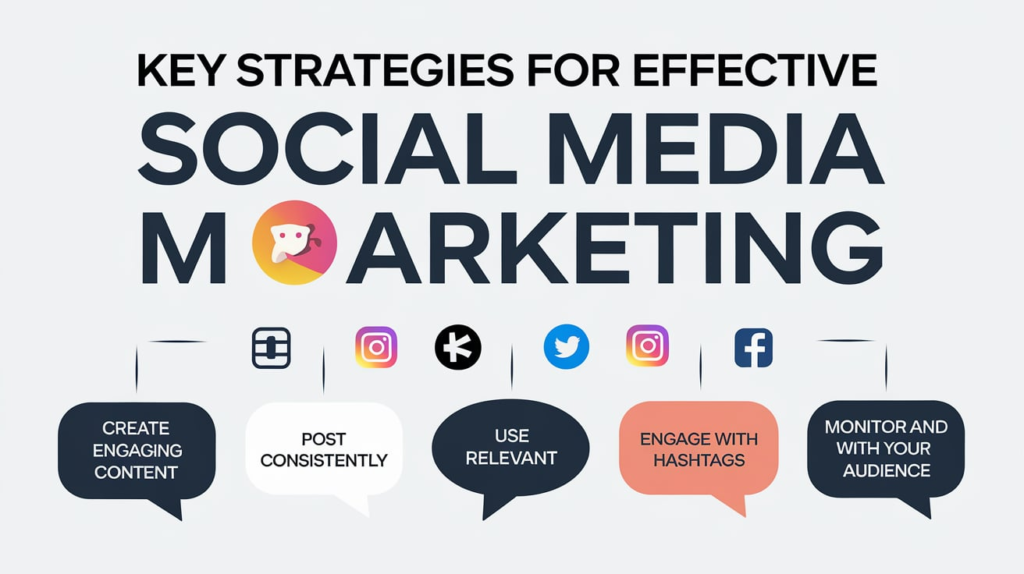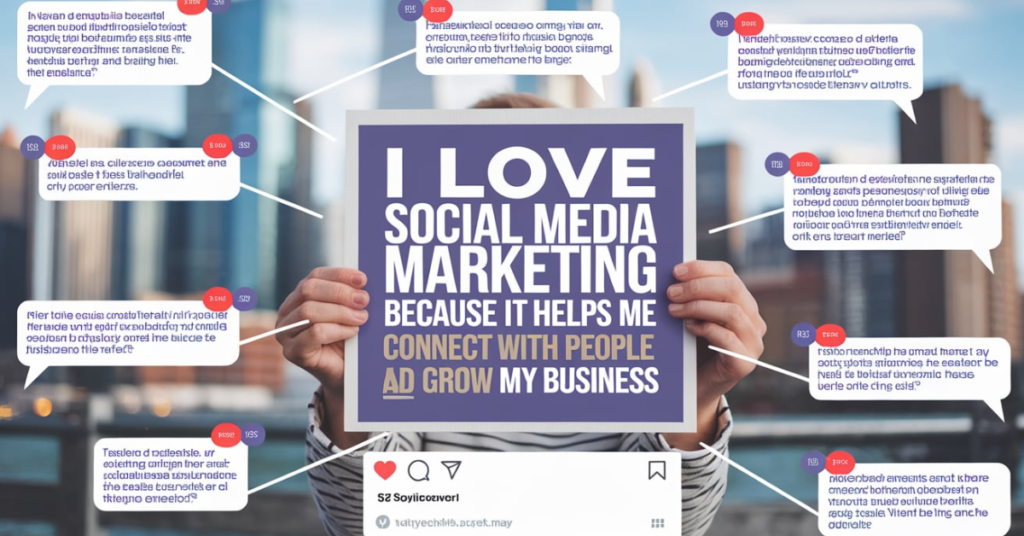In the fast-paced digital landscape of the 21st century, social media has emerged as a cornerstone of marketing strategies for businesses of all sizes. With billions of users worldwide, platforms like Facebook, Instagram, Twitter, LinkedIn, and TikTok offer unparalleled opportunities to connect with potential customers. This article delves into the intricacies of social media marketing, exploring its benefits, strategies, and future trends.
The Rise of Social Media Marketing
A Brief History
The origins of social media can be traced back to the early 2000s with platforms like Friendster and MySpace. However, it wasn’t until the launch of Facebook in 2004 that social media began to gain mainstream traction. Over the years, the landscape has evolved dramatically, with platforms continuously adapting to user needs and technological advancements.
The Importance of Social Media in Marketing
Today, social media is not merely a communication tool; it is a critical component of marketing strategies. According to a report by Statista, as of 2023, there are over 4.9 billion social media users globally. This number is projected to grow, highlighting the vast potential for businesses to engage with their audience. Social media marketing not only increases brand awareness but also drives traffic to websites, enhances customer engagement, and improves conversion rates.
Benefits of Social Media Marketing
1. Increased Brand Awareness
Social media provides businesses with the ability to reach a large audience quickly. Regularly posting engaging content helps create visibility and recognition. Brands that maintain an active presence on social media can increase their reach significantly, turning followers into advocates.
2. Cost-Effective Marketing
Compared to traditional advertising channels, social media marketing is often more affordable. Many platforms offer free accounts, and paid advertising options can be tailored to fit various budgets. This cost-effectiveness allows businesses, especially small ones, to compete with larger companies.
3. Improved Customer Engagement
Social media facilitates direct communication between brands and consumers. Businesses can interact with customers through comments, messages, and shares, creating a two-way dialogue. This engagement helps build relationships, fosters loyalty, and encourages repeat business.
4. Targeted Advertising
One of the most significant advantages of social media marketing is the ability to target specific demographics. Platforms provide detailed analytics that allow marketers to tailor their content and advertisements to particular audiences based on factors like age, gender, location, interests, and behaviors.
5. Enhanced SEO Rankings
Social media can indirectly influence search engine optimization (SEO) rankings. While social signals (likes, shares, and comments) don’t directly impact SEO, the increased visibility and traffic to a website can lead to better rankings on search engines.
6. Insights and Analytics
Most social media platforms offer robust analytics tools that provide insights into audience behavior and content performance. Businesses can use this data to refine their strategies, ensuring they produce content that resonates with their audience.
Key Strategies for Effective Social Media Marketing

1. Define Clear Goals
Before diving into social media marketing, it’s crucial to establish clear objectives. Whether it’s increasing brand awareness, driving traffic, generating leads, or boosting sales, having defined goals will guide your strategy and help measure success.
2. Know Your Audience
Understanding your target audience is fundamental to successful marketing. Conduct market research to identify demographics, preferences, and behaviors. Tailor your content to meet the needs and interests of your audience.
3. Choose the Right Platforms
Not all social media platforms are created equal. Each has its unique audience and type of content that performs best. For instance, Instagram is ideal for visual content, while LinkedIn is suited for B2B marketing. Select platforms that align with your brand and audience.
4. Create Engaging Content
Content is at the heart of social media marketing. High-quality, engaging content that provides value to your audience is essential. This can include blog posts, videos, infographics, and interactive content like polls and quizzes.
5. Consistency is Key
Maintaining a consistent posting schedule helps keep your audience engaged and aware of your brand. Use content calendars to plan and schedule posts, ensuring a steady stream of content that aligns with your goals.
6. Leverage Influencer Marketing
Influencer marketing has gained immense popularity in recent years. Partnering with influencers who resonate with your target audience can significantly amplify your reach and credibility. Authentic collaborations often yield better results than traditional advertising.
7. Engage with Your Audience
Social media is a platform for dialogue, not just broadcasting. Respond to comments, answer questions, and engage with your audience to foster a sense of community. This interaction can lead to increased loyalty and brand advocacy.
8. Monitor and Adjust
Regularly monitor your social media performance through analytics. Assess what content resonates with your audience and adjust your strategy accordingly. Flexibility is crucial in the ever-changing landscape of social media.
Challenges in Social Media Marketing
1. Algorithm Changes
Social media platforms frequently update their algorithms, which can affect the visibility of your posts. Staying informed about these changes and adjusting your strategy accordingly is essential for maintaining engagement.
2. Negative Feedback
The open nature of social media means that negative feedback is inevitable. Handling criticism professionally and addressing issues promptly is crucial for maintaining your brand’s reputation.
3. Content Saturation
With millions of posts shared daily, standing out in the crowd can be challenging. Creating unique, high-quality content that captures attention requires creativity and effort.
4. Time-Consuming
Managing social media accounts can be time-consuming, especially for small businesses with limited resources. Developing a strategy and utilizing automation tools can help streamline the process.
Future Trends in Social Media Marketing
1. Video Content Dominance
Video content continues to dominate social media, with platforms like TikTok and Instagram Reels leading the way. Short, engaging videos capture attention quickly and are highly shareable, making them a powerful tool for marketers.
2. Social Commerce
The integration of e-commerce into social media platforms is on the rise. Features that allow users to shop directly from social media posts create seamless buying experiences, making it easier for businesses to drive sales.
3. AI and Automation
Artificial intelligence (AI) is transforming social media marketing. From chatbots that provide instant customer service to AI-driven analytics that offer insights into audience behavior, leveraging technology can enhance marketing efforts.
4. Authenticity and Transparency
Consumers increasingly value authenticity and transparency from brands. Companies that showcase their values, share behind-the-scenes content, and engage in honest communication are likely to resonate more with their audience.
5. Niche Platforms
While mainstream platforms dominate, niche social media platforms are gaining traction. These specialized networks cater to specific interests and demographics, offering unique opportunities for targeted marketing.
Conclusion
Social media marketing is an ever-evolving field that presents both challenges and opportunities for businesses. By understanding its benefits, implementing effective strategies, and staying informed about trends, brands can harness the power of social media to connect with their audience, drive engagement, and achieve their marketing goals. As we move forward in this digital age, the importance of social media in shaping consumer behavior and business success will only continue to grow. Embracing this dynamic landscape is not just an option—it’s a necessity for businesses looking to thrive in today’s competitive environment.








